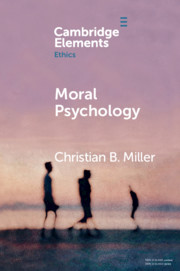Element contents
Moral Psychology
Published online by Cambridge University Press: 10 May 2021
Summary
- Type
- Element
- Information
- Series: Elements in EthicsOnline ISBN: 9781108581011Publisher: Cambridge University PressPrint publication: 03 June 2021
References
- 17
- Cited by

